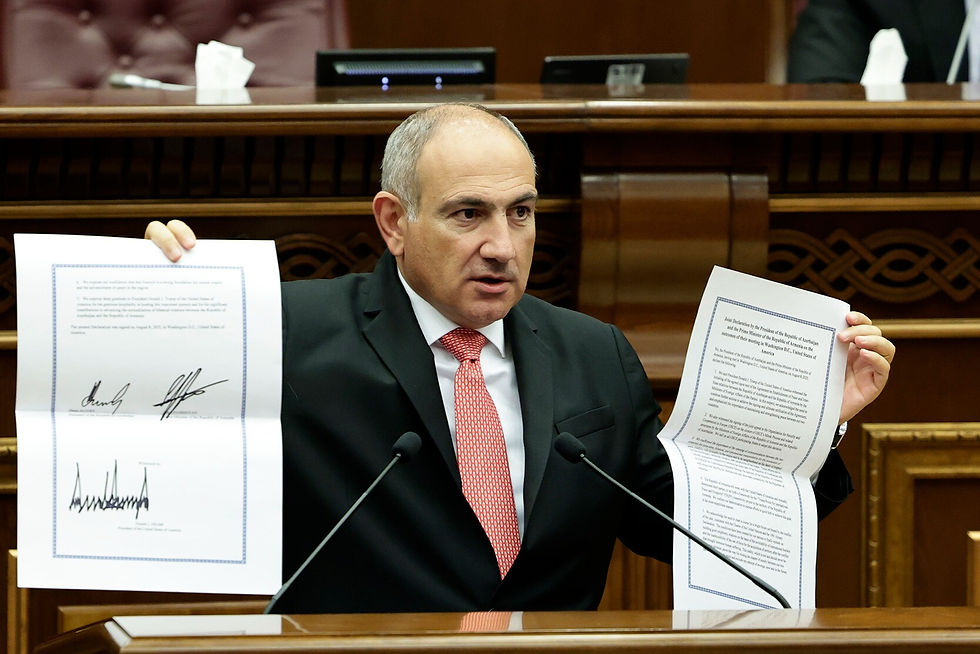Will Azerbaijan Transport Arms Through Syunik? Pashinyan Responds
- Sep 18, 2025
- 2 min read

The opening of the Syunik road, dubbed the “Trump route,” has sparked serious security concerns in Armenia. The route, which connects Azerbaijan to its Nakhijevan exclave through sovereign Armenian territory, could allow Baku to transport weapons and troops across Armenian lands. Today, Prime Minister Nikol Pashinyan neither confirmed nor denied these fears, but said that Armenia’s security and sovereignty remain the government’s top priority.
Pashinyan explained that the details of the road openings are still being negotiated. He stressed that any solution must follow the principle of reciprocity: conditions that apply to Armenia must also apply to Azerbaijan. He made it clear that Armenia will not automatically allow weapons or military movements through its territory without careful consideration.
“If a condition applies to Armenia, that condition also applies to Azerbaijan. We need to ask ourselves: do we want our weapons and troops to pass through Nakhijevan, or not? When we decide that we want to transport weapons through Nakhijevan towards Meghri and in the opposite direction, we will open negotiations on that topic. If we decide that we do not want to transport weapons two ways through Nakhijevan to Syunik and back, then we will adopt the appropriate formula,” Pashinyan said.
The Washington agreement has raised further concern, as it grants Azerbaijan unobstructed access through Armenian territory to Nakhijevan. For Armenia, however, no such guarantee exists. Instead, Armenia is promised international and domestic communication with reciprocal benefits. Observers argue that this imbalance could threaten the safety of Syunik and, by extension, Artsakh.
For over a month, journalists have asked about the potential movement of Azerbaijani forces through the Syunik road, but Pashinyan has not shared detailed information. He has reiterated that Armenia will uphold five fundamental principles: sovereignty, territorial integrity, legitimacy, reciprocity, and inviolability of borders.
“The principle exists so that we do not ask, ‘what about rain, hail, or drought?’ We cannot have multiple volumes of cases to interpret a single issue. That is why we have five principles, which are recorded, published, and signed, and everything will fit within that logic,” the Prime Minister concluded.
—
Support independent reporting from the region by subscribing to The Armenian Report. Our team is funded solely by readers like you.






Comments